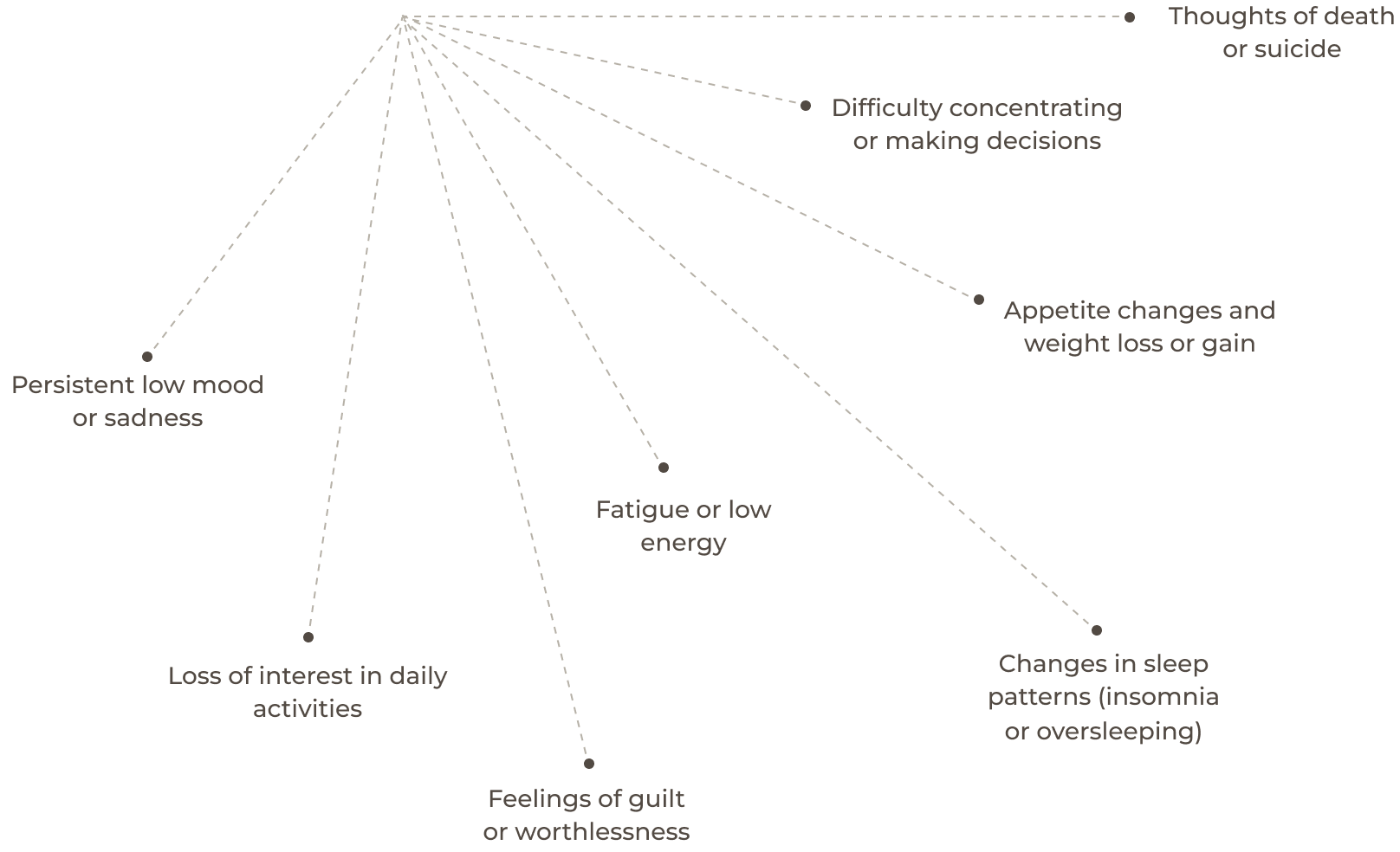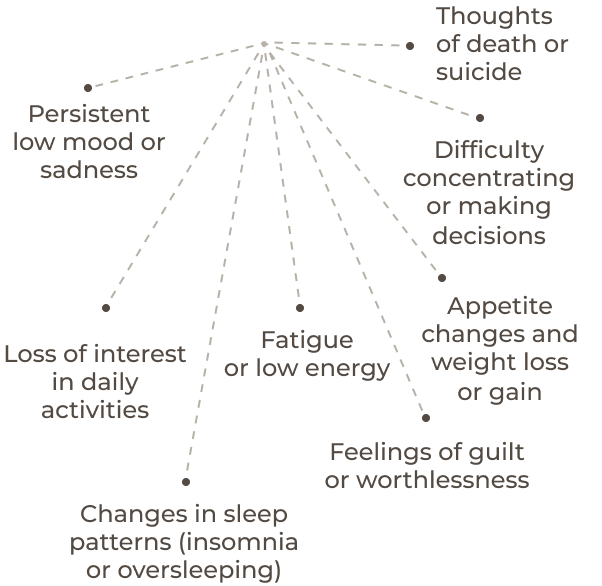Depression

Depression is a common but serious mental health condition characterized by persistent feelings of sadness, hopelessness, and a loss of interest or pleasure in activities once enjoyed. It can also affect physical health, leading to changes in appetite, sleep disturbances, fatigue, and difficulty concentrating.
Depression can arise from a complex interplay of genetic, biological, environmental, and psychological factors. While it can occur in episodes, some individuals may experience chronic depression that lasts for years.
Treatment options are varied and can include psychotherapy, such as cognitive-behavioral therapy (CBT) or interpersonal therapy, and medications like antidepressants. Lifestyle changes, such as regular exercise, a balanced diet, and social support, can also play a crucial role in managing symptoms. Seeking help from a mental health professional is an important step toward recovery!

Symptoms
of Depression



How We Can Help with Depression

During this comprehensive assessment, we gather detailed information about your medical history, emotional symptoms, and life circumstances. Through open dialogue, we explore how depression affects your daily functioning, relationships, and overall well-being. This thorough evaluation not only aids in accurately diagnosing depression but also helps identify any underlying issues or co-occurring conditions that may require attention. Based on the insights gained, we collaboratively develop a personalized treatment plan that may include therapy, medication options, and lifestyle changes, ensuring a holistic approach tailored to your specific needs and goals for recovery.
In our approach to medication management for depression, we adopt a conservative mindset, emphasizing the careful and judicious use of psychiatric medications informed by the latest scientific research and evidence-based practices. We remain updated on advancements in psychopharmacology to ensure our recommendations reflect the most effective and proven treatment options. Our primary goal is to maximize therapeutic benefits while minimizing potential risks and side effects. Whenever possible, we prioritize non-pharmacological interventions, recognizing the value of a comprehensive treatment strategy that addresses all aspects of your mental health.
Psychotherapy for depression is a structured and supportive service aimed at helping individuals navigate their emotional challenges. Through a collaborative approach, we engage in meaningful conversations that allow you to explore the root causes of your feelings and behaviors. This therapeutic process focuses on enhancing self-awareness, developing effective coping strategies, and fostering resilience. By addressing negative thought patterns and improving interpersonal skills, psychotherapy can lead to significant improvements in mood, relationships, and overall quality of life. Ultimately, the goal is to empower you with the tools needed to manage depression and promote lasting mental well-being.
Lab monitoring and psychotropic genetic testing for depression are essential services aimed at optimizing treatment outcomes and enhancing safety. Lab monitoring involves regular assessments to track key health markers, such as liver function and blood counts, ensuring that any medications prescribed are being well-tolerated and are effective in managing your symptoms. Psychotropic genetic testing analyzes your genetic profile to determine how your body may respond to certain antidepressants, helping to identify the most suitable medications for you. By understanding potential sensitivities and responses, we can tailor your treatment plan more precisely, improving efficacy and reducing the risk of side effects.
Let’s Connect!

